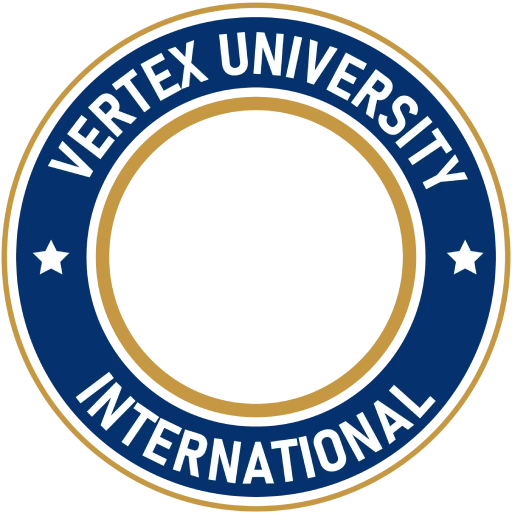Master Financial Technology (FinTech)
In light of the rapid changes in the financial sector, The School of Business at University offers a Master's program in Financial Technology, Which enables students to keep pace with the latest developments in the world of finance, Including significant advances in digital payment systems, Cryptocurrencies, And technologies such as artificial intelligence, blockchain, And cybersecurity. The program aims to provide students with the tools and knowledge necessary to understand this radically changing financial world.
The program revolves around developing students' skills in financial and technical fields, Where they learn how to analyze the functions of banks and financial intermediaries, And gain the ability to evaluate and improve financial products and services to enhance profitability. It also allows them to delve into data science using advanced tools such as Python and blockchain technology, Enabling them to develop innovative solutions for complex financial challenges.
The program enhances students' practical skills through hands-on training in financial data analysis, Which helps in predicting market trends, understanding customer behavior, and discovering promising investment opportunities. It also focuses on legal and ethical aspects, And introduces students to the latest financial compliance standards, Which enhances their social responsibility and supports transparency and integrity in their work.
The program aims to prepare leaders capable of using financial technology to revolutionize electronic payment systems, And improve trading strategies in global financial markets. It also contributes to promoting innovation and opening new horizons for applying technological solutions in facing financial challenges encountered by banking institutions.
The Master's in Financial Technology at University offers an exceptional educational experience, Through distinguished faculty members with academic and practical experiences, Ensuring an integrated experience that meets the needs of the fast-paced job market. The program also provides opportunities for practical training in prominent financial institutions and banks in the student's country, In addition to encouraging students to acquire multiple language skills that enhance their ability to work in diverse international financial environments.
Thanks to this program, Graduates have wide opportunities to work in multiple sectors including banks, Forex companies, Insurance companies, Financial markets, multinational corporations. In addition to other areas in the global financial market.
Our Vision and Mission
Join now the elite of future professionals in financial technology and be part of the evolution that is reshaping the global financial system.
Our Vision
Leadership in preparing specialists capable of developing innovative digital financial solutions that enhance the performance of markets and institutions globally.
Our Mission
Qualifying financial technology professionals who combine deep knowledge, Smart application, And commitment to ethical values to achieve sustainable financial impact.
- Implement innovative financial solutions using advanced systems and data structures, and develop the ability to use technologies such as blockchain and artificial intelligence to design and develop effective financial solutions.
- Analyze financial data using advanced statistical tools and acquire the necessary skills to use quantitative analysis and predictive models to derive strategic insights and achieve financial goals.
- Apply artificial intelligence techniques in financial services and design and implement intelligent systems such as chatbots and biometrics that contribute to improving user experience and operational efficiency.
- Manage financial transactions using blockchain technologies and digital currencies, Improve security, reduce costs, and increase efficiency in financial operations through the application of blockchain technology.
- Teach students how to comply with local and international standards and protect personal data to ensure transparency and security in financial transactions.
- Enhance students' ability to innovate new financial solutions using modern technologies such as artificial intelligence and data analysis.
- Analyze global financial trends using intelligent forecasting tools, and enable students to use advanced data and technologies to predict financial market trends and make strategic decisions based on those predictions.
- Use advanced economic models to support financial decisions, and apply advanced analysis tools to support informed financial decision-making in areas such as investment and lending.
- Enhance students' ability to create and manage innovative financial technology companies that meet the needs of modern digital markets.
- Enable students to use sophisticated software and tools to analyze financial data and find practical solutions.
- Enhance communication skills within multidisciplinary teams and teamwork to ensure the success of financial technology projects.
- Learn how to evaluate and analyze financial risks and develop strategies to mitigate these risks using modern technology tools.
- Encourage students to provide innovative solutions that meet the needs of financial institutions and contribute to improving operational efficiency and increasing financial returns.
- Provide students with the skills and strategies necessary to improve user experience in financial websites and applications to ensure the delivery of flexible, secure services that meet customer requirements.
Teaching methods and strategy

Case studies
The program is based on analyzing and studying real-world models from the world of financial technology, where students gain an in-depth understanding of the challenges facing financial institutions in the digital transformation era. By exploring success and failure cases of Fintech projects, students learn how to design effective strategies, analyze financial risks, and leverage advanced technologies such as artificial intelligence and blockchain to improve banking operations and digital financial services.

Applied Projects
The program provides opportunities for students to work on real and virtual projects that simulate challenges in the modern financial sector. Whether through developing e-payment solutions, designing financial analytics systems based on big data, or improving cybersecurity strategies, these projects enhance students' analytical and creative thinking abilities. They are also encouraged to use the latest financial tools and technologies to ensure the delivery of innovative solutions with tangible impact in financial markets.

Teaching strategies
The Master's program in Financial Technology from University adopts an integrated educational approach that combines theoretical study and practical application, where teaching methods include interactive lectures, case studies from the financial reality, and specialized workshops in financial data analysis and modern technology. The program also includes group discussions on current challenges in the digital financial sector, and problem-based learning addressing practical issues facing digital banks and financial technology companies. This approach aims to equip students with risk analysis skills, development of innovative technical solutions, and an in-depth understanding of digital financial systems, enhancing their ability to lead digital transformation in financial institutions.
What can you do with a Master's degree in Financial Technology?
The Master's in Financial Technology from University qualifies its graduates for diverse positions in financial institutions, Include:
Are you ready to keep pace with the digital transformation in the financial sector?
- Technical Financial Analyst
- Financial Technology Project Manager
- Financial Technology Consultant
- Financial Data Analyst
- Financial Application Developer
- Technical Risk Manager
- Financial Cybersecurity Specialist
Don't miss the opportunity, and join the pioneers of future financial technology.
- Financial Technology Operations Manager
- Financial Systems Analyst
- Business Development Manager in Financial Technology
- Financial Technology Product Manager
- Financial Technology Investment Analyst
- Technical Compliance Manager
- Professor or Lecturer in Financial Technology
Get a consultation
Free now
Do you want to help?
+1 (984) 382-6080
Target Audience for the Master's Program in Financial Technology

The Master's program in Financial Technology targets a wide range of individuals seeking to enhance their knowledge and acquire advanced skills in this vital field. Target Groups, Include:
- Recent graduates with a bachelor's degree in fields such as finance, accounting, Computer science, business administration, Or any related field, Who aspire to enter the job market in the financial technology sector and benefit from its growing opportunities.
- Professionals working in the financial and technical sector in banks, investment companies, And technology companies an opportunity to develop their skills in financial analysis, Digital risk management, And innovation in digital financial services using the latest tools and methodologies.
- Individuals wishing to change their career path from various backgrounds who want to transition into the field of financial technology and take advantage of new opportunities in digital banking, Electronic payments, And digital asset management.
- Entrepreneurs and startup owners in financial technology to develop their own projects by providing them with specialized knowledge in designing innovative financial solutions, and leverage technologies such as blockchain, الذكاء الاصطناعي، and big data analysis to enhance their businesses.
Enhance your professional skills with international certifications
This certification is one of the most prestigious in the field of financial analysis and investment. It is offered by the CFA Institute in the United States, and focuses on developing skills in financial analysis and investment portfolio management.
Offered by the Global Association of Risk Professionals (GARP), it focuses on assessing and managing financial risks in institutions, including market, credit, and operational risks.
Awarded by the Project Management Institute (PMI), it focuses on project management skills, including planning, execution, monitoring, and project closure.
Awarded by the International Institute of Business Analysis (IIBA), it focuses on business analysis skills, identifying needs, and developing appropriate solutions.
Offered by the Information Systems Audit and Control Association (ISACA), it focuses on information security management, developing security policies and procedures, and managing information-related risks.
CBDAP certification is a professional qualification that focuses on providing specialists with fundamental and advanced knowledge in the field of blockchain technologies and digital currencies. The certification covers core concepts of blockchain, Smart contracts, Digital assets, and modern applications in Decentralized Finance (DeFi) systems.
The CFCRMP certification qualifies professionals to understand complex cyber threats facing financial technology systems, and learn advanced strategies for risk management and ensuring the security of digital data and transactions.
The CDPS certification aims to qualify specialists to understand the infrastructure, technology, and regulations associated with digital payment systems, focusing on mobile payment applications, electronic wallets, bank payment systems, and global systems such as SWIFT, VisaNet, and Blockchain-based Payments.
Admission Requirements
- Regular admission: The applicant for the graduate program must hold a bachelor's degree from a reputable university or from the student's country.
- The applicant must have a bachelor's degree in Marketing, business administration, Data Science, or any related specialization from an accredited university.
- Proficiency in English if the language of instruction in the program is English, with passing the approved language test.
- Conditional Admission: The university may offer conditional admission to applicants until all admission requirements are completed (terms and conditions apply to this category).
- Submission of official documents including the original bachelor's degree certificate and transcript, with certified copies.
- Completing the electronic application form through the university's admission and registration portal.
- Payment of registration fees and tuition fees as per university regulations.
- Adherence to university rules and regulations by signing an official pledge.
Required Documents
- A colored copy of the bachelor's degree certificate issued by the student's country "Ministry of Higher Education".
- A color copy of the student's or family's ID card for matching.
- A color copy of the student's passport.
- A personal photo (6*4) with a white background.
- Complete the registration data and sign it by the student.
Requirements for Obtaining Master in Financial Technology (FinTech) Specialization
| Number of Credit Hours Required to Complete the Master Degree | 36 Minimum Required Credit Hours |
|---|---|
| Number of Required Academic Semesters | 4 Academic Semesters |
| Number of Semesters per Year | 3 Semesters |
| Annual Credit Hours | 45 Credit Hour |
| Semester Duration | 8 to 10 weeks |
| Expected Duration to Complete the Program | 1 year and 8 months |
Advantages of this system.
- Complete the Master's in a short time: The program can be completed in a year and a half instead of two or three years.
- Flexible distribution of courses: Courses are distributed throughout the year, allowing for continuous learning without long interruptions.
- Intensive schedule: Enables quick completion of studies, suitable for students who wish to enter the job market as quickly as possible.
*This system was designed at Vertex University to enable students to obtain their university degree in a shorter time while maintaining the quality of education and the efficiency of the academic process.

Want to get more information?
Register your details and we will contact you as soon as possible
Frequently Asked Questions about Master Financial Technology (FinTech)
The primary language is English, with explanatory support in Arabic for some courses.
Yes, yes. The university offers a flexible study mode that allows organizing studies alongside work or family commitments.
Yes, yes. Designed according to ACBSP and CIPD standards, and the college is seeking international accreditation.
Yes, yes. The programs include applied projects and virtual or field practical training in real work environments.
Yes, yes. Each student is assigned an academic advisor to monitor the study plan and provide academic support when needed.
Yes, yes. You can apply for any of the doctoral programs in the College of Business Administration or other related colleges.
